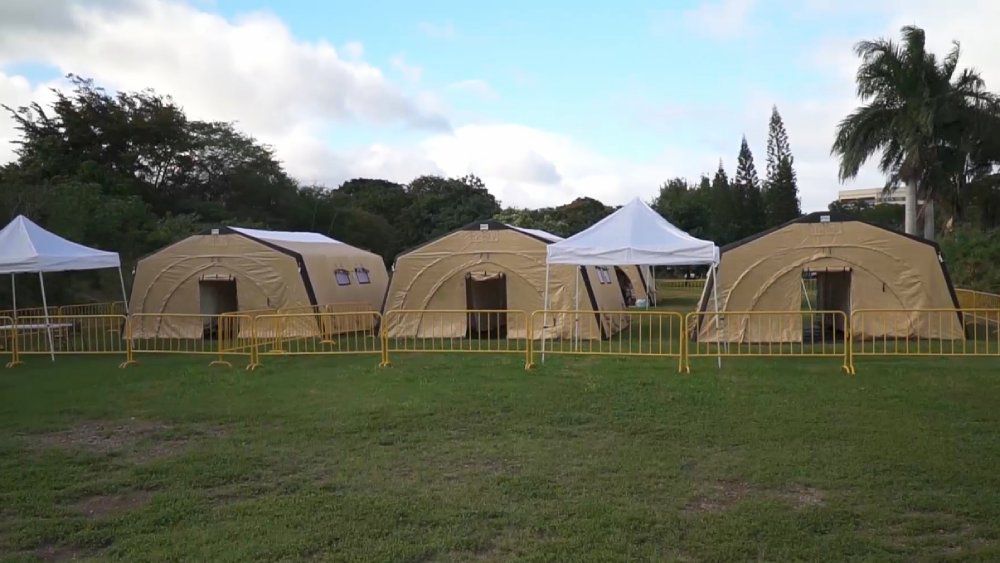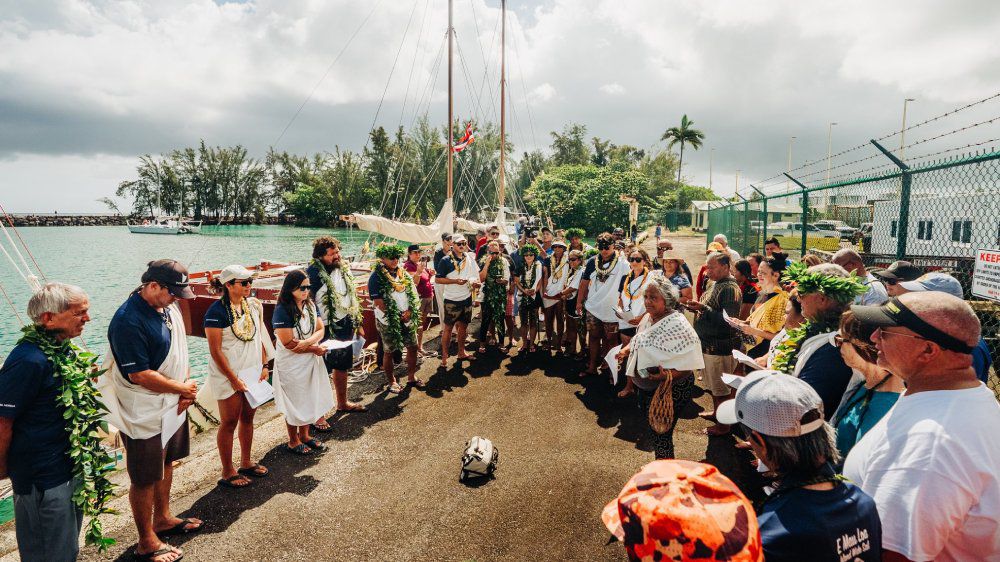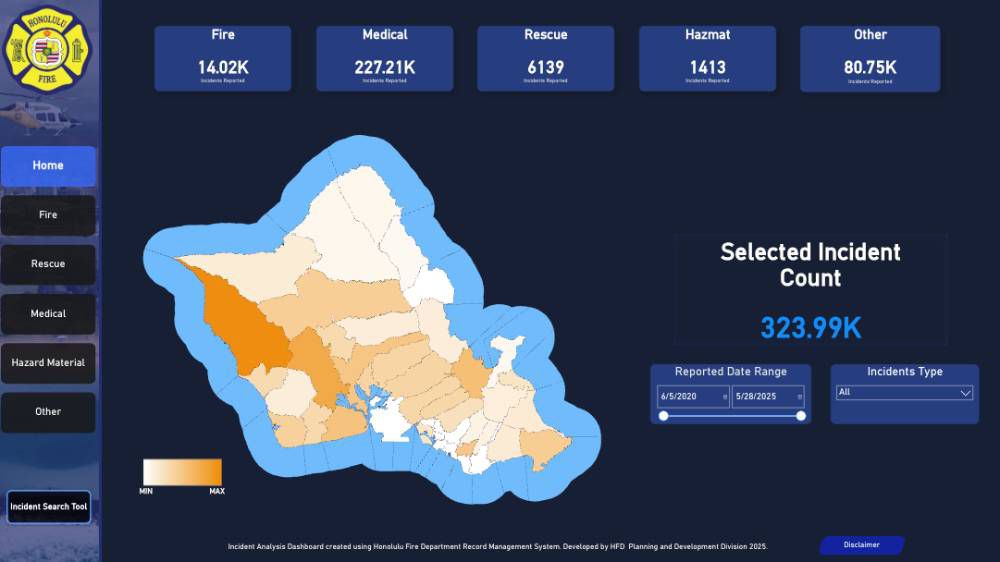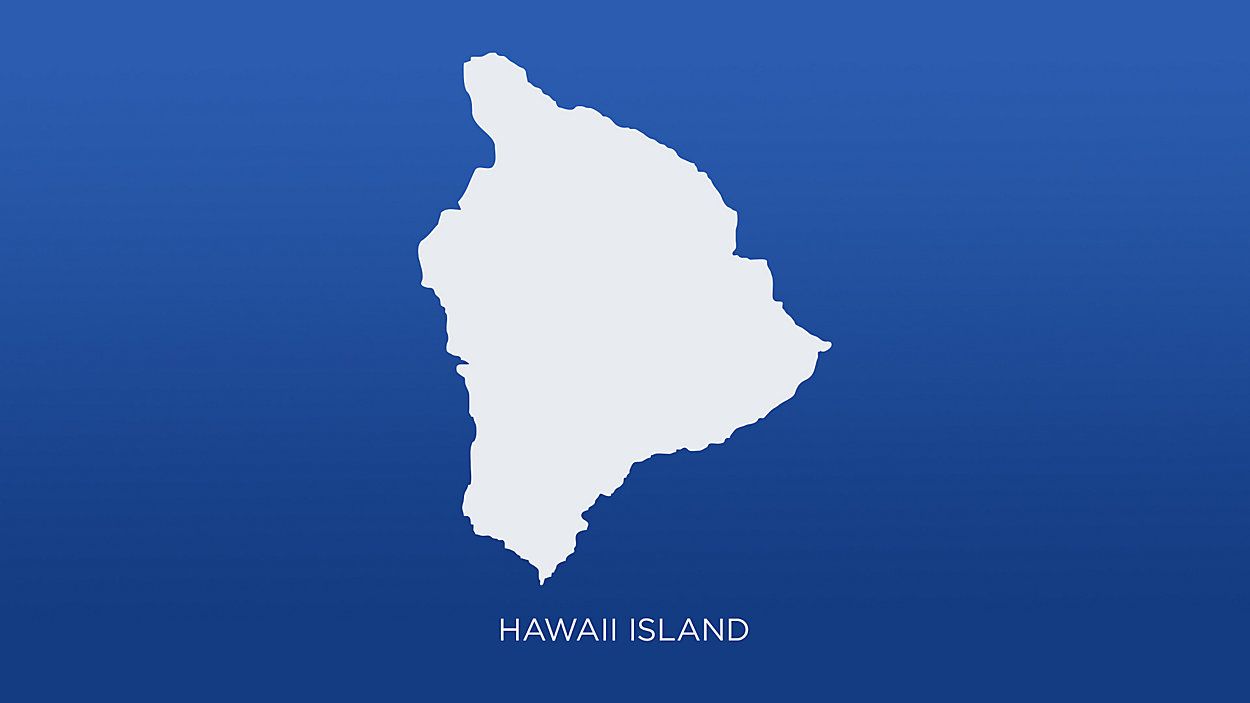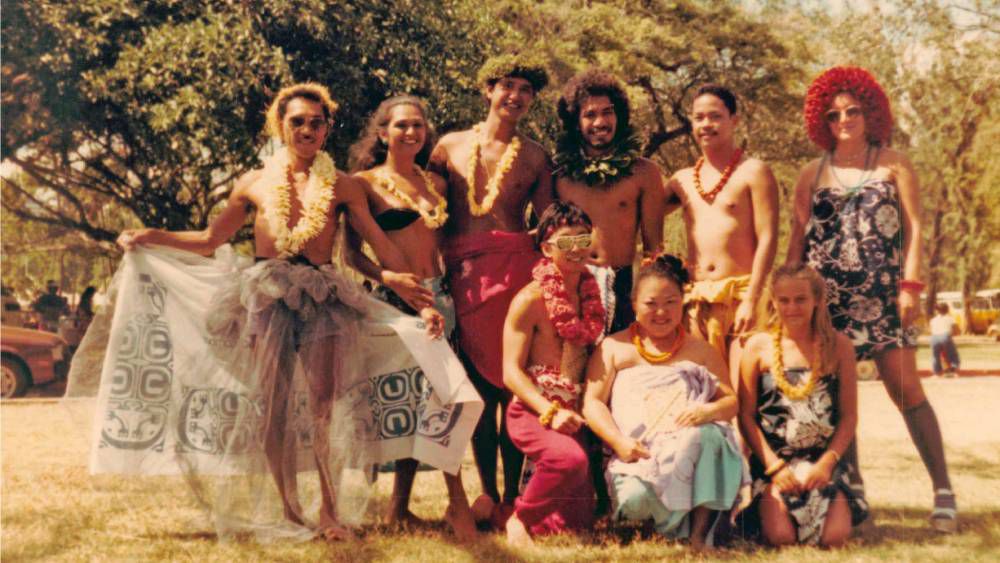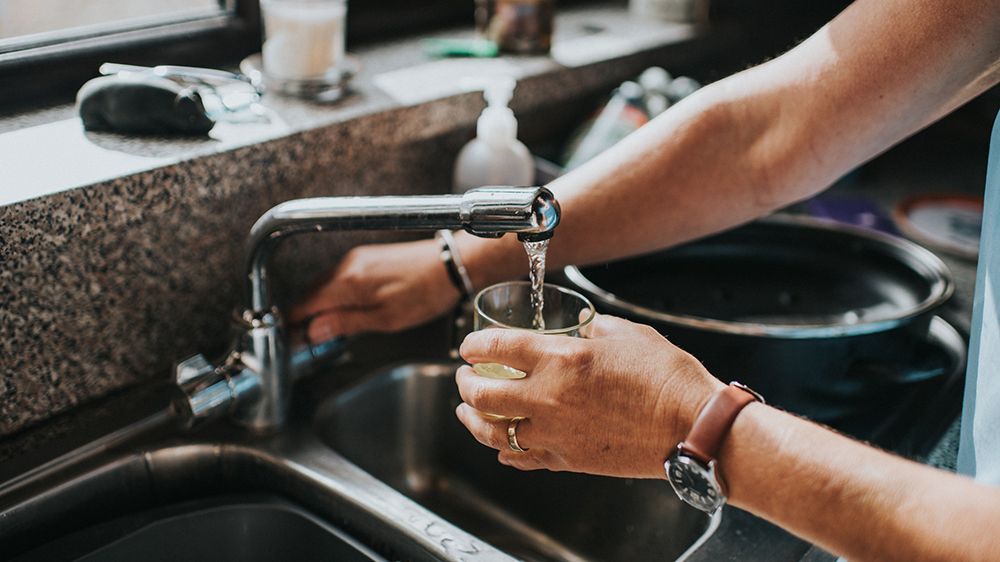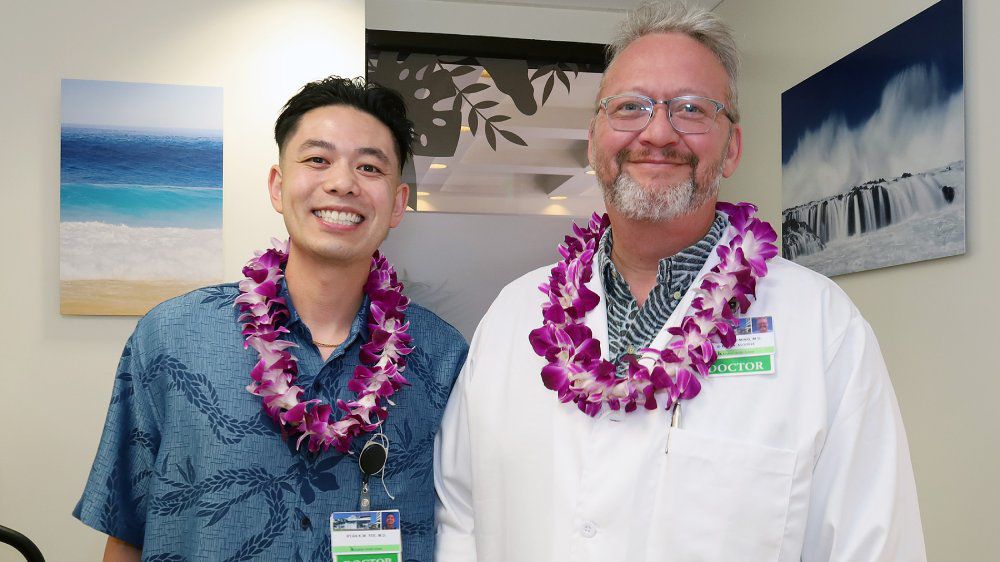HONOLULU — The Homeless Outreach and Navigation for Unsheltered Persons is moving from the Neal S. Blaisdell Park in Aiea to a vacant lot across from Kapolei Hale starting Oct. 1, announced the City and County of Honolulu on Friday.
Located off Kapolei Parkway between Kamaaha Avenue and Alohikea Street, the lot is commonly referred to as “Musubi Lot” because of its triangular shape and rounded corners. It’s located amid homeless encampments that have generated numerous complaints.
“Kapolei has been on our radar for a while and finding a location has been a challenge given how busy the Regional Park is,” said City and County of Honolulu Homeless Coordinator Sam Moku in a release. “The Musubi Lot is something outside the box for us and is being made available for HONU through the collaboration of multiple city departments.”
The city will work with area service providers and businesses to increase outreach activities to “high complaint” areas such as Kapolei Regional Park, along Kapolei Parkway and areas in Kalaeloa once HONU is situated at the new site.
Earlier in the week, the Neighborhood Board Meeting for Makakilo, Kapolei and Honokai Hale unanimously voted in support of HONU.
Officials say as a mobile shelter, HONU has been effective in getting unsheltered individuals to engage with the system.
“With HONU we are able to meet people where they are at, physically, and connect them with services to address their needs,” added Moku. “HONU continues to positively impact the communities it has visited.”
HONU is a mobile triage and shelter set up on public land, most often at city parks, for about 90 to 120 days. Funded in partnership with the State of Hawaii, the program serves 40 to 50 homeless individuals at a time during which they receive services and assistance to identify and steer them toward the most appropriate shelter or housing option.
Since the program began in Dec. 2019, HONU has helped over 4,095 people, navigating over 2,205 of them into more permanent living situations.




